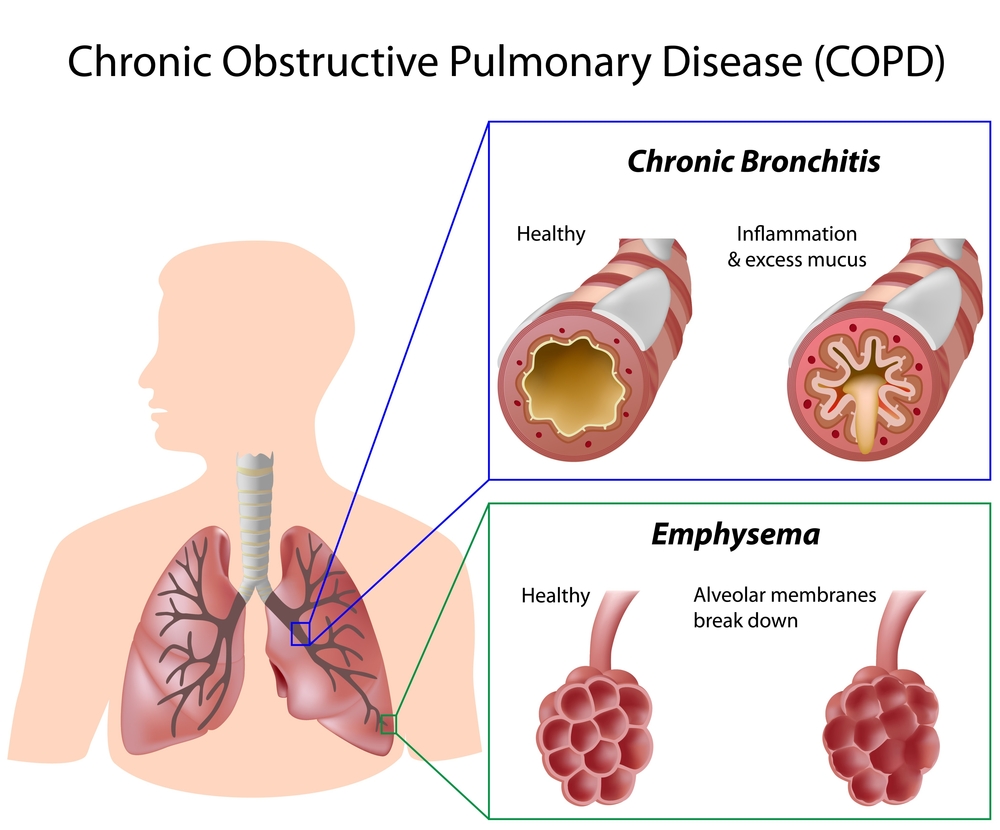In a new study entitled “Aclidinium bromide and formoterol fumarate as a fixed-dose combination in COPD: pooled analysis of symptoms and exacerbations from two six-month, multicentre, randomized studies (ACLIFORM and AUGMENT),” authors determined the effects of combined aclidinium/formoterol therapy in reducing moderate to severe COPD patients’ symptoms and exacerbation rates. The study was published in the journal Respiratory Research.
COPD (short for chronic obstructive pulmonary disease) is a disease characterized by chronic obstruction of lungs’ airways. Its symptoms include breathlessness (dyspnea), cough and mucus production. The disease often escalates to periods of acute exacerbation where patients experience worsening symptoms (particularly increased frequency and severity of shortness of breath and coughing) that associate with a rapid decline in lung function and higher mortality rates.
Therapy with aclidinium bromide, a long-acting anticholinergic (anticholinergic agents work by inhibiting acetylcholine, a neurotransmitter, and thus controlling the involuntary movement of nerves’ cells, in this case, in the lungs), combined with formoterol fumarate, a long-acting β2- agonist, was shown to improve COPD patients’ lung function. It is currently standard treatment in Europe as a maintenance treatment; however, its impact on COPD symptoms and exacerbations remains unknown.
In this new study, authors determined its effects by reviewing data from two randomized Phase III clinical studies, ACLIFORM and AUGMENT (both a multi center, 24-week, double-blind, parallel-group study with a placebo control group). The total population of intervened patients included 3394 patients who were more than 40 years old and experiencing moderate to severe COPD. The team determined that aclidinium/formoterol at a dosage of 400/12 μg delivered twice a day significantly improved patients dyspnea (determined by the Transition Dyspnea Index, TDI) when compared to both placebo-control and monotherapies (aclidinium 400 μg or formoterol 12 ug) groups. Additionally, they observed that during the 24-week treatment, patients also exhibited improvements in daily symptom severity (including night-time and early-morning) and were less limited in their daily activities with the combined aclidinium/formoterol therapy. The Healthcare Resource Utilisation (HCRU) test and daily symptoms were also reduced in this group in contrast to the placebo control group, but no differences were observed in HCRU when compared to the monotherapy groups.
The team highlights that their findings show that the combined therapy aclidinium/formoterol at 400/12 μg is efficient and significantly improves COPD patients’ early symptoms while reducing the frequency of exacerbations.

